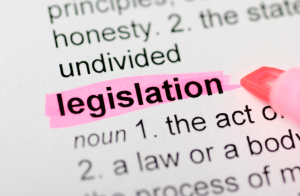Colorado Privacy Act Passes Legislature: Growing Inconsistencies Ramp Up Pressure for Federal Privacy Law
Today, the Colorado Senate approved the House version of the Colorado Privacy Act (SB21-190) that passed yesterday, on June 7. If approved by Governor Jared Polis, Colorado will follow Virginia and California as the third U.S. state to establish baseline legal protections for consumer privacy.
“Although the Colorado Privacy Act contains notable advances that build on California and Virginia — in particular, formalizing a global privacy control, and applying to non-profit organizations — there continues to be an urgent need for Congress to set federal standards that create baseline nationwide protections for all.”
Statement by Polly Sanderson, Policy Counsel, Future of Privacy Forum
Colorado’s law features elements of both Virginia and California’s consumer privacy laws, as well as some elements unique to Colorado. The law is the first in the U.S. to apply to non-profit entities in addition to commercial entities. It contains a strong consent standard to process personal data for incompatible secondary uses and to process sensitive data such as health information, race, ethnicity, and other sensitive categories. The bill prohibits controllers from employing so-called “dark patterns” to obtain consent and allows consumers to exercise their opt-out rights via authorized agents. Consumers will be able to express their intent to opt-out of sales and targeted advertising via a universal opt-out mechanism established by the Colorado Attorney General, who is also granted authority to issue opinion letters and interpretive guidance on what constitutes a violation of the Act.
Similar to Virginia’s recently passed Consumer Data Protection Act, Colorado’s law requires controllers to conduct data protection assessments for processing activities that present a heightened risk of harm to a consumer. This, along with FIPPs-inspired data minimization and purpose specification provisions, promotes organizational accountability and moves beyond a notice and consent framework. By excluding de-identified data from the scope of personal data and excluding pseudonymous data from the rights of access, correction, deletion, and portability, the law follows existing standards and incentivizes covered entities to maintain data in less identifiable formats.
As a growing number of states begin to pass their own consumer privacy laws, concerns about interoperability may begin to emerge. For instance, definitional differences regarding what constitutes sensitive data, pseudonymous data, and biometric data may present operational challenges for businesses. Similarly, the scope of access, deletion, and other consumer rights differ between Colorado, Virginia, and California, creating potential implementation challenges. Finally, the research exemptions of each of these laws differ in their flexibility, consent, and oversight requirements.
Media Inquiries: Polly Sanderson, Senior Counsel at [email protected]

